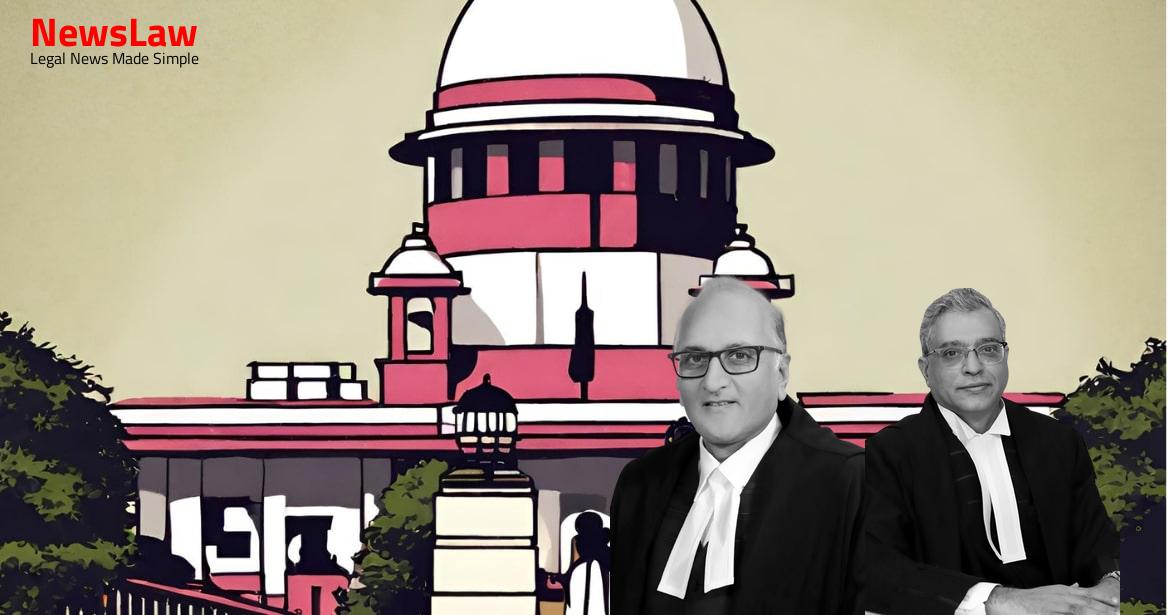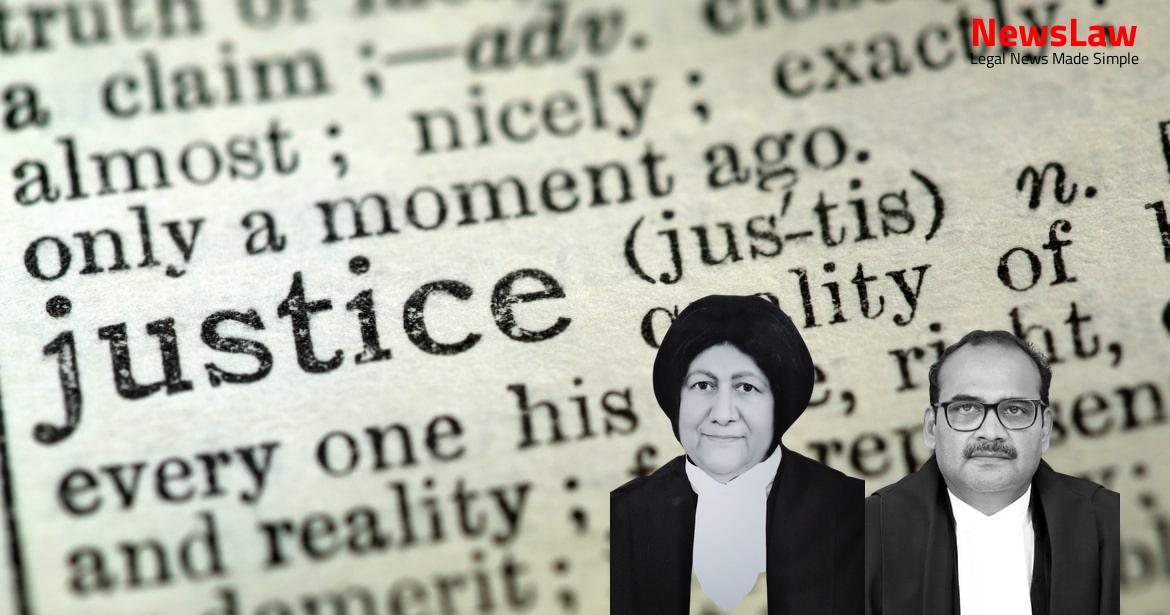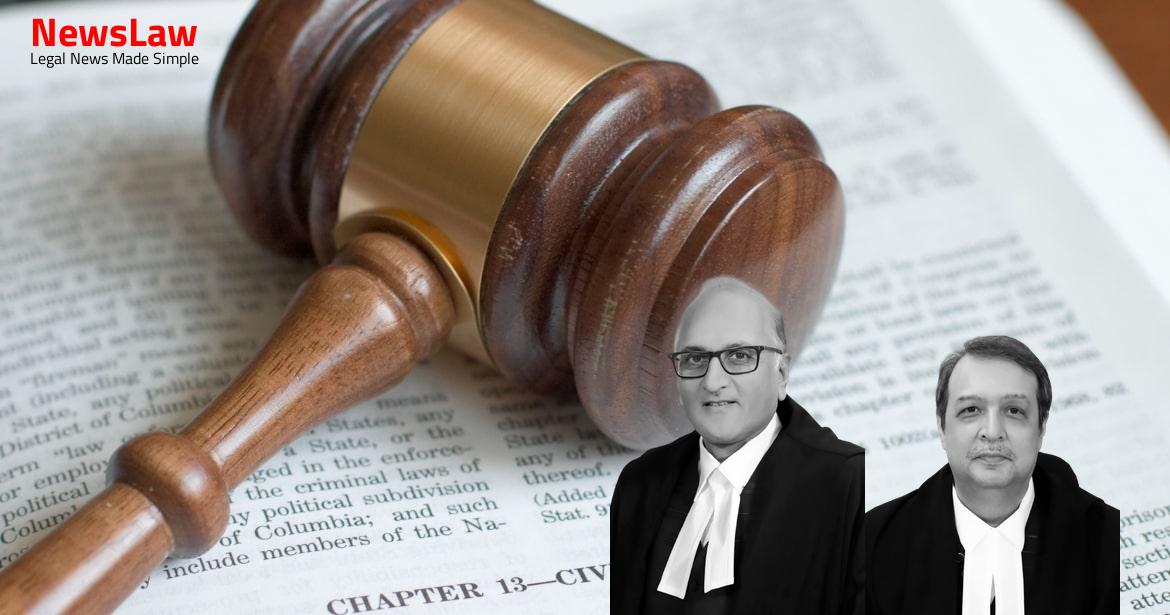In a significant legal development, the Supreme Court has delivered a decisive judgment on the appeals involving land acquisition and development rights, particularly concerning the Mumbai Municipal Corporation. This ruling addresses key issues related to delay and laches in granting relief and the application of existing regulations. Stay informed about the latest developments in the case involving the Mumbai Municipal Corporation and the impact of the Court’s decision on land acquisition policies.
Facts
- Petitioners did not apply for 100% additional TDR even after the decision in Godrej & Boyce Manufacturing Co. Ltd. case
- Petitioners were granted FSI and/or TDR in the form of DRC equal to the area of surrendered plots
- Various writ petitions were filed seeking additional FSI or TDR for amenities developed
- Some petitions were dismissed on grounds of delay and laches
- Mumbai Municipal Corporation was directed to consider granting additional FSI/TDR based on merits and court decisions
- Regulations and appendices related to TDR and FSI were modified over time
- Cases of private petitioners and the MMC were considered by the High Court
- Multiple appeals have been filed by different parties against High Court judgments
- The Court may reverse the finding of the High Court on the issue of delay and laches in granting relief to the appellants.
- Compensation payable to landowners/lessees for land acquisition is held in trust by the acquiring body, Mumbai Municipal Corporation.
- Interpretation of provisions in the case of Godrej & Boyce I was made by the Court regarding additional TDR and its use for amenity construction or development.
- Judgment dated 18.12.2018 upheld petitioners’ right to 100% additional TDR based on the Godrej & Boyce I case.
- High Court’s decision in allowing the writ petition for granting 100% TDR was deemed correct by the Court.
- Application for 100% TDR in respect of amenity was made by the petitioner to MMRDA within one month of the Godrej & Boyce I case decision, which was acted upon.
- Once compensation is determined, it is payable and reliefs should not be denied on the ground of delay or laches.
- Certain writ petitioners were declined reliefs for additional TDR due to delay and laches in claiming it on time.
Also Read: Service Tax on the Sale of Lottery Tickets: Supreme Court’s Landmark Ruling
Issue
- The High Court’s decision to decline relief to the writ petitioners/appellants based on delay and laches is being questioned.
- The appeals filed by the Mumbai Municipal Corporation are under scrutiny for potential interference by this Court.
- The key issues to be addressed involve the High Court’s decision on delay/laches, and the merit of the Mumbai Municipal Corporation’s appeals.
Also Read: Judgment on GMO Regulations and Environmental Protection
Arguments
- The High Court was not right in dismissing the writ petitions based on delay and laches without proving that the delay amounted to laches
- The amendment of Regulation 34 of the DCR was intended to grant additional compensation to landowners due to the enforcement of the Right to Fair Compensation and Transparency in Land Acquisition, Rehabilitation and Resettlement Act, 2013, not to remove the basis of the judgment in Godrej & Boyce I
- The Mumbai Municipal Corporation contended that the decision in Godrej & Boyce I was per incuriam as it ignored the effects of Regulation 33 of the DCR, but subsequent cases reaffirmed the application of Godrej & Boyce I
- The notification dated 16.11.2016 could not have a retrospective effect to nullify the judgment in Godrej & Boyce I, as it would deprive the writ petitioners of their vested rights under the old DCR
- The Mumbai Municipal Corporation failed to prove prejudice due to the alleged delay by the appellants in making claims under Section 126(1)(b) of the MRTP Act
- The right to receive compensation for acquisition is a vested and constitutional right that cannot be taken away by legislative amendments
- The denial of balance 75% TDR based on the 16.11.2016 notification is unsustainable as Regulation 34 read with Appendix-VII provides a complete code for grant of TDR
- The High Court was justified in denying relief based on the delay and laches, as developers who already accepted TDR could not re-agitate the matter
- The attempt to curtail amenity TDR to 25% is invalid, and the judgment in Godrej & Boyce I remains intact
- Learned counsel for the respondents supported the impugned order and contended that appeals have no merit in light of previous judgments.
- Respondents sought application of the judgment in Godrej & Boyce I to their cases.
- Respondent contended that Municipal Corporation appeals should be dismissed.
- Petitioners sought additional TDR after eight years and more have passed.
Also Read: Mistaken Bid Rectification Case: Balancing Equity in Tender Matters
Analysis
- The judgment analyzed the provision of Regulation 33 and Appendix-VII in relation to the grant of additional development rights.
- It was noted that the possession of DP Roads was handed over to the Municipal Corporation in various cases after construction.
- The delay and laches in filing petitions for additional TDR were considered detrimental to the claims of the petitioners.
- The interpretation of words such as ‘amenity’ and ‘development’ in the context of the MRTP Act was discussed.
- The differentiation between FSI or TDR for road construction and other amenities was emphasized.
- The impact of amendments to Regulation 33 post-2010 was explained, including restrictions on additional TDR in certain circumstances.
- The significance of surrendering land and developing amenities in accordance with the regulations was highlighted.
- The judgment also addressed the issue of abandonment of claims based on delays in seeking additional TDR.
- The interplay between original regulations and subsequent amendments was examined to determine the applicability of granting additional TDR.
- The ruling considered the circumstances under which petitions were dismissed, emphasizing the importance of timely claims and adherence to regulatory requirements.
- The High Court exercised judicial discretion in the case of Natwar Parikh & Co. Pvt. Ltd. by considering the rights that had accrued to others due to the delay in filing the petition.
- Delay and laches are grounds for denying the exercise of discretion in granting relief.
- The High Court relied on precedents like Godrej & Boyce I and Arvind Kashinath Dadarkar to grant relief in terms of TDR issuance.
- The law of abandonment was considered in the context of contentions raised by the Mumbai Municipal Corporation.
- The High Court observed that the notification dated 16 November 2016 had legal and valid implications but would not apply retrospectively in cases where land reserved for public amenity was surrendered before that date.
- In the case of Apurva Natwar Parikh & Co. Pvt. Ltd., the surrender of land was followed by a request for 100% additional TDR within three years, indicating prompt action.
- The High Court clarified the requirements for TDR issuance based on DCR regulations and the surrender of land for public amenities.
- Discretion to condone delay and laches should be exercised judiciously by the courts, especially when no third-party interests are involved.
- The Bombay High Court was incorrect in dismissing the writ petitions based on delay and laches.
- The portions of the High Court’s order related to delay and laches are set aside.
- The three appeals filed by the Mumbai Municipal Corporation do not hold merit.
- For land reserved for a road, the FSI or TDR in lieu of amenity will be governed by Regulation 33(1) as amended on June 17, 2010, if the road was developed between June 17, 2010, and November 16, 2016.
- The decision of the Apex Court in the case of Godrej & Boyce Manufacturing Company Limited is not per incuriam.
- The doctrines of delay, laches, abandonment of claim, or waiver do not apply in these cases based on previous judgments.
- The High Court’s reasoning on merits in the discussed cases is just and proper, not requiring any interference by this Court.
- Three modes of acquisition of land for public purposes specified in the plan are outlined in Section 126 of the MRTP Act.
- The modes of acquisition include acquisition by agreement, granting the landowner or lessee Floor Space Index (FSI) or Transferable Development Rights (TDR), and application to the State Government for acquisition under the Right to Fair Compensation and Transparency in Land Acquisition, Rehabilitation, and Resettlement Act, 2013.
- Once the land is acquired, it vests absolutely free from encumbrances in the Planning Authority, Development Authority, or the Appropriate Authority.
- The market value of the land for acquisition purposes is determined based on specific criteria depending on the purpose for the land acquisition.
- The declaration for land acquisition is made by the State Government, and if not made within a specified period, a fresh declaration can be issued.
- No declaration for land acquisition can be made after one year from the date of publication of the draft Regional Plan, Development Plan, or any other relevant plan or scheme.
- The Planning Authority or Development Authority may acquire land for public purposes after the publication of a draft Regional Plan or Development Plan.
Decision
- Whether writ jurisdiction can be invoked under Article 226 depends on facts and conduct of petitioners.
- Writ Petition No.203 of 2014 is allowed.
- Writ Petition No.839 of 2015 is rejected.
- Writ Petition No.541 of 2017 is rejected.
- Writ Petition No.2871 of 2015 is rejected.
- Civil Appeals by Mumbai Municipal Corporation are dismissed.
- Balances FSI/TDR to be released to respondents within three months.
- Impugned orders dismissing writ petitions due to delay and laches are set aside.
- Mumbai Municipal Corporation to consider cases of appellants as per court judgments.
- Kukreja Construction Company to have amenities considered for additional FSI/TDR.
- Exercise of reviewing cases to be completed within three months.
- Recommendation by MMRDA for 75% additional FSI/TDR to be made within two months.
- DRC of 25% amenity granted in December 2010.
- In Writ Petition No.2262 of 2010, petitioners entitled to additional 100% amenity FSI with proper documentation.
- Other writ petitions rejected.
Case Title: KUKREJA CONSTRUCTION COMPANY Vs. THE STATE OF MAHARASHTRA (2024 INSC 692)
Case Number: C.A. No.-009702-009702 – 2024



